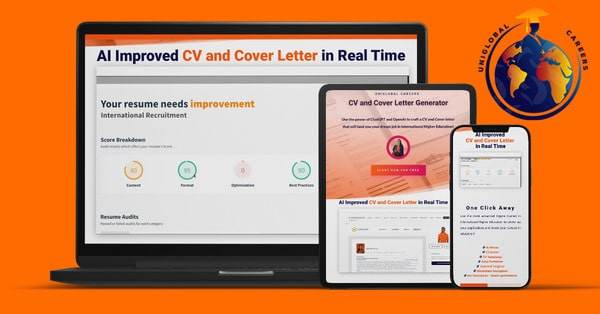How to Land a Director of Studies for Visiting Students Role at UK Universities: Expert Tips for International Higher Education Job Seekers
Are you an ambitious professional looking to build your career in international higher education? Securing a Director of Studies for Visiting Students role at UK universities can be a transformative step. This complete guide will walk you through everything you need to know about landing this sought-after position, from understanding the core duties to expert tips for applications and interviews. Whether you are new to the field or seeking to advance in your current path, these insights will help position you for success in the UK higher education sector.
What Is a Director of Studies for Visiting Students?
The Director of Studies for Visiting Students is a pivotal role within UK universities, responsible for overseeing the academic experiance of international, study abroad, or exchange students.This position is foundational for ensuring these students integrate successfully, achieve their learning goals, and benefit from all the university has to offer. As a liaison between students, academic departments, and administrative offices, the Director of Studies addresses academic progress, welfare concerns, and cultural adaptation challenges faced by visiting scholars.
Key Responsibilities
- Advising and supporting visiting students on academic matters
- Facilitating course selection,enrolment,and credit transfer
- Organising orientation and integration programmes
- Liaising with academic departments to ensure smooth delivery of courses
- Monitoring academic progress and intervening where necessary
- Collaborating with student support services and international offices
- Developing policies and best practices for visiting student engagement
Why Pursue a Career as a Director of Studies for Visiting Students in the UK?
UK universities stand at the forefront of global education,attracting thousands of international students each year. Taking on the Director of Studies position in this vibrant context allows you to:
- shape the academic journeys of diverse, high-achieving students
- Expand your professional network across global education institutions
- Influence innovative policy and program advancement
- Enhance your leadership skills in a multicultural environment
- Access rewarding remuneration and ample career progression opportunities
qualifications and Skills required
To rise as a competitive candidate for a Director of Studies role at UK universities, you’ll need a blend of robust academic credentials, relevant work experience, and critical soft skills.
Academic Qualifications
- Minimum: A Master’s degree in education, international relations, or a related field (a PhD might potentially be preferred by some institutions).
- Additional certifications: Professional development in student advising, cross-cultural communication, or higher education management is a plus.
Professional Experience
- Significant experience (typically 3-5+ years) in higher education administration,preferably within international student programmes.
- demonstrated leadership or coordination roles for study abroad, exchange, or visiting student schemes.
- Direct experience with student advising, welfare, and support services.
Critical Skills and Competencies
- Exceptional intercultural communication skills and awareness
- Strategic decision-making and educational leadership abilities
- Strong organisation, project management, and analytical skills
- Empathy, problem-solving, and conflict resolution skills
- Proficiency with database management and student management systems
- Fluency in English and, optionally, additional languages
Where to Find Director of Studies Opportunities for Visiting Students
While career paths may vary, most university-level openings in the UK for this specialist role are listed on:
- University careers portals (e.g., University of Oxford, University of Cambridge, UCL, Durham University)
- Leading UK academic job boards
- Professional associations for international education (such as UKCISA and universities UK)
- Higher education recruitment agencies
Expert Tips to Stand Out in Your Request
1. Tailor Your CV and Cover Letter
- Highlight specific experience with international/visiting students and academic advising.
- Quantify achievements (e.g., “managed support for 300+ visiting students annually” or “launched a peer mentorship programme”).
- Use action verbs and measurable outcomes to demonstrate impact.
2. Demonstrate Cross-Cultural Competence
- Showcase examples of working within diverse educational environments.
- Mention relevant professional development in intercultural communication or international affairs.
3. Provide Evidence of Leadership and Initiative
- Describe times when you led change or tackled challenges proactively.
- Discuss projects or initiatives you devised to support international or visiting students.
4. build a Professional Network in International Higher Education
- Attend UK and global conferences for higher education professionals.
- Engage with association events, webinars, and LinkedIn groups focused on international student support.
- Connect directly with current Directors of Studies at UK universities for informational conversations.
5. Prepare for Interview Success
- Anticipate scenario-based questions (e.g., how you’d resolve a visiting student’s academic appeal or handle a critical incident).
- Discuss familiarity with UK university systems and regulatory environments (such as UKVI regulations for international students).
- Show your passion for inclusive education and student success.
Benefits of Working as a Director of Studies for Visiting Students
Choosing a career as Director of Studies in the UK comes with notable personal and professional benefits:
- Professional growth: Develop in a leadership role within the international higher education sector.
- Global impact: Support students from around the world and foster diversity.
- Networking: Collaborate with faculty and peers across the international academic spectrum.
- Continuous learning: Stay at the forefront of innovations in student mobility and support services.
- Attractive compensation: Benefit from competitive salaries, university perks, and ample work-life balance.
Practical Steps to Begin Your Journey
-
Research UK University Structures:
- Understand how visiting student programmes are managed at top UK institutions.
- Familiarise yourself with UK higher education policies, student support protocols, and compliance frameworks.
-
Enhance Your Credentials:
- pursue further education or professional training in student services or international education management.
- Sharpen your data analysis and project management skills relevant to higher education.
-
Engage in Professional communities:
- Active membership in international education forums and associations.
- Attend workshops, webinars, and online courses relevant to UK higher education and student mobility.
-
Gain Relevant Experience:
- Seek out voluntary or part-time roles supporting international or exchange students within universities or colleges.
-
stay Updated with Emerging Trends:
- Follow developments in digital learning, diversity and inclusion, and evolving student engagement practices in the UK.
Common Challenges and How to Overcome Them
- Highly Competitive Pool: Stand out with niche expertise, demonstrable outcomes, and ongoing professional development.
- Changing Policy landscape: Stay current with UK border and higher education regulations affecting international students.
- Cross-Cultural Adjustment: Cultivate resilience,open-mindedness,and a proactive attitude to adapt to diverse educational cultures.
- Demanding Stakeholder Management: Develop strong negotiation and conflict resolution skills to manage complex academic and student issues.
Conclusion: Charting Your Path to a Director of Studies Role in the UK
Becoming a Director of Studies for visiting Students at a UK university is an exciting and meaningful career move for those passionate about international higher education. with a strategic approach — by acquiring the right qualifications, building hands-on experience, and showcasing your cultural agility — you can position yourself as an outstanding candidate in a competitive market. Stay committed to professional development, nurture your network, and keep abreast of the latest trends in student mobility and support.
If you’re driven to empower visiting students, facilitate global academic exchange, and play a pivotal role in the UK’s international education success story, now is the perfect time to pursue this dynamic path. Your next career milestone awaits in the ever-evolving world of UK international higher education!


